Corsair RM650x PSU Review
Another Corsair PSU is in the lab, commanding our attention. We already reviewed the RM750x and RM550x, so we couldn't leave out the RM650x. It promises the same high performance as its siblings, along with super quiet operation.
Why you can trust Tom's Hardware
Transient Response Tests
Advanced Transient Response Tests
For details on our transient response testing, please click here.
Ιn these tests, we monitor the PSU's response in two different scenarios. First, a transient load (10A at +12V, 5A at 5V, 5A at 3.3V and 0.5A at 5VSB) is applied for 200 ms while the PSU works at 20 percent load. In the second scenario, the PSU is hit by the same transient load while operating at 50 percent load. In both tests, we use our oscilloscope to measure the voltage drops caused by the transient load. The voltages should remain within the ATX specification's regulation limits.
These tests are crucial because they simulate the transient loads a PSU is likely to handle (such as booting a RAID array or an instant 100 percent load of CPU/GPUs). We call these tests "Advanced Transient Response Tests," and they are designed to be very tough to master, especially for a PSU with a capacity of less than 500W.
Advanced Transient Response at 20 Percent
| Voltage | Before | After | Change | Pass/Fail |
|---|---|---|---|---|
| 12V | 12.045V | 11.979V | 0.55% | Pass |
| 5V | 5.038V | 4.980V | 1.15% | Pass |
| 3.3V | 3.312V | 3.243V | 2.08% | Pass |
| 5VSB | 5.014V | 4.979V | 0.70% | Pass |
Advanced Transient Response at 50 Percent
| Voltage | Before | After | Change | Pass/Fail |
|---|---|---|---|---|
| 12V | 12.001V | 11.938V | 0.52% | Pass |
| 5V | 5.029V | 4.974V | 1.09% | Pass |
| 3.3V | 3.308V | 3.240V | 2.06% | Pass |
| 5VSB | 4.996V | 4.953V | 0.86% | Pass |
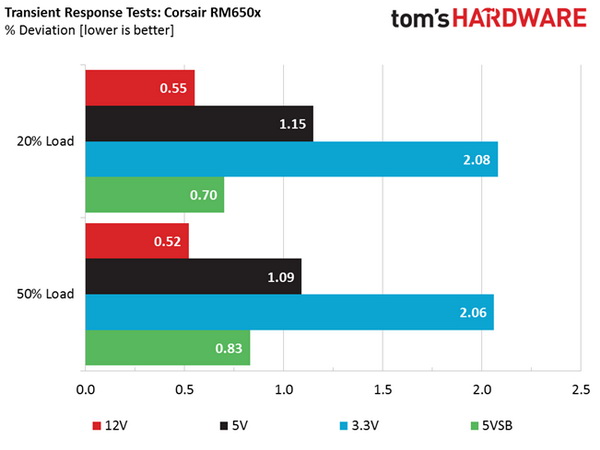
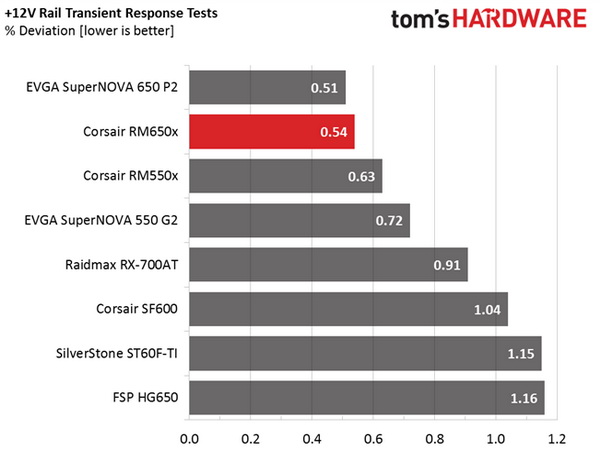
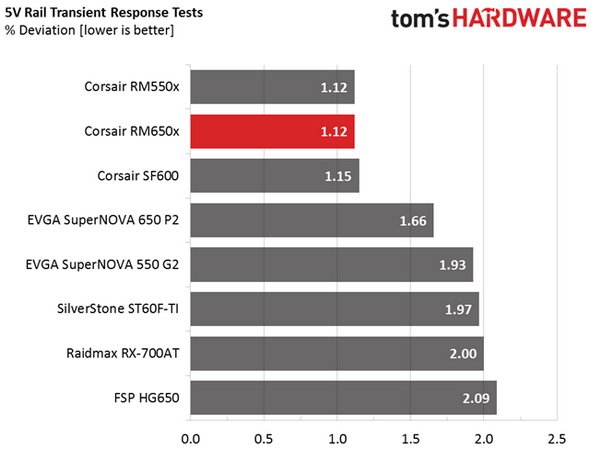
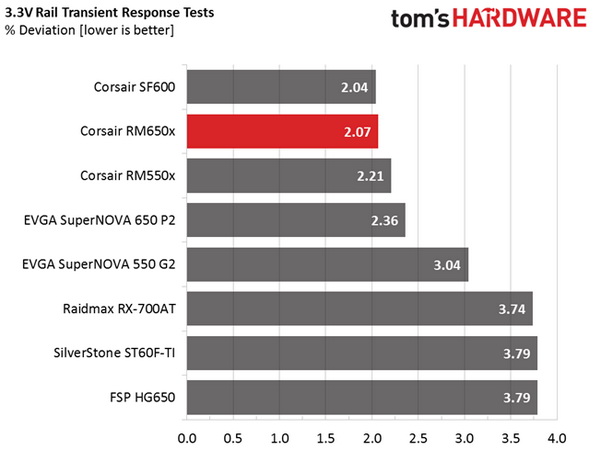
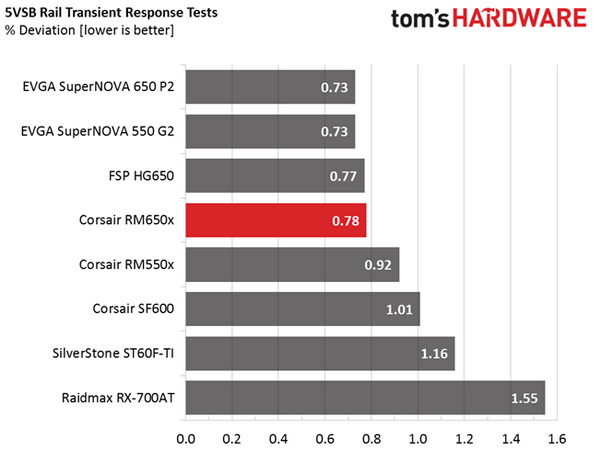
The +12V rail performs amazingly in these tests. Even the 3.3V rail, which usually exceeds 3% deviation, stayed close to 2% in this case. Corsair's platform is great here, and with slightly tighter +12V load regulation it could give the competition serious headaches (not that it hasn't already).
Here are the oscilloscope screenshots we took during Advanced Transient Response Testing:
Transient Response At 20 Percent Load
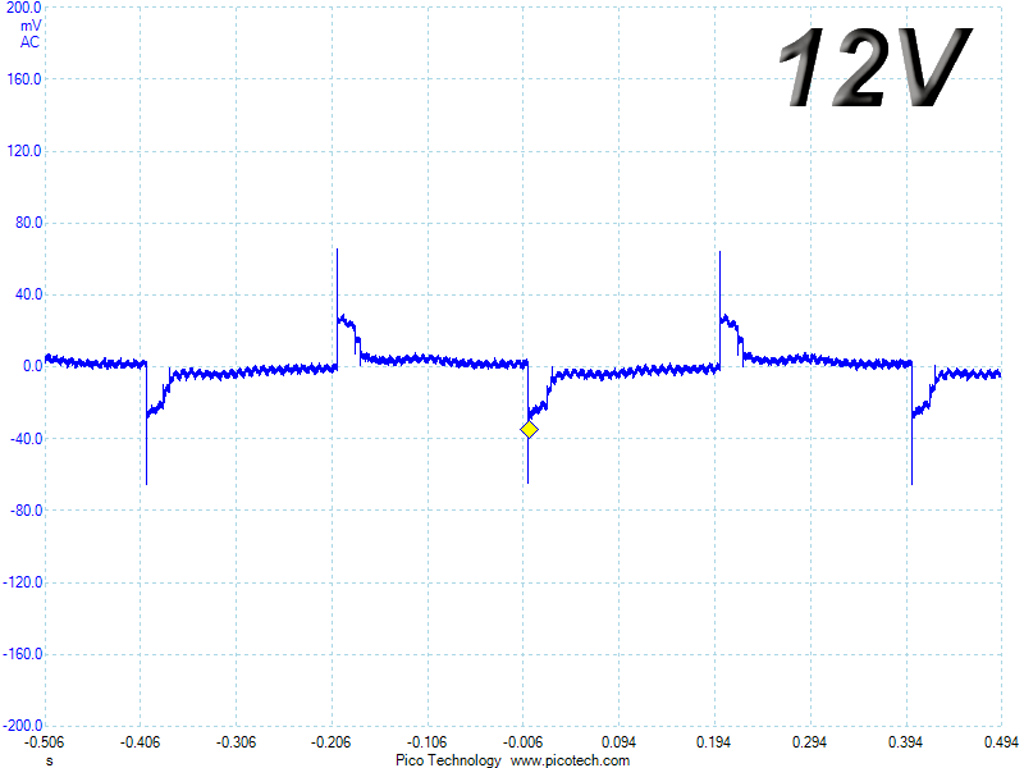
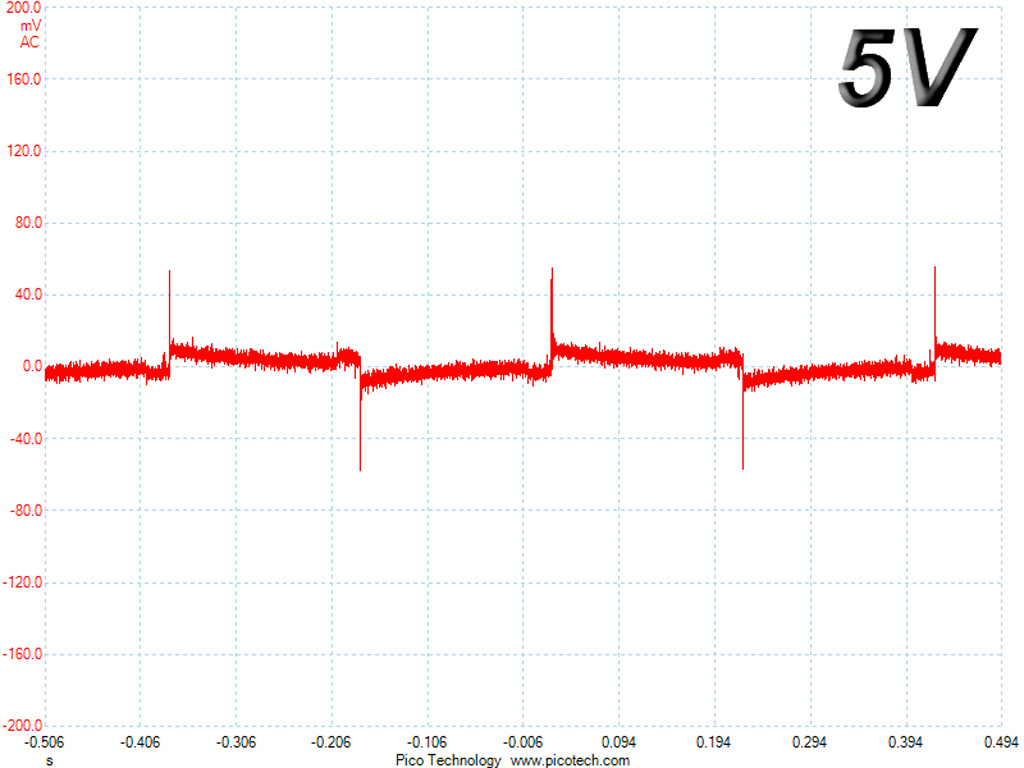
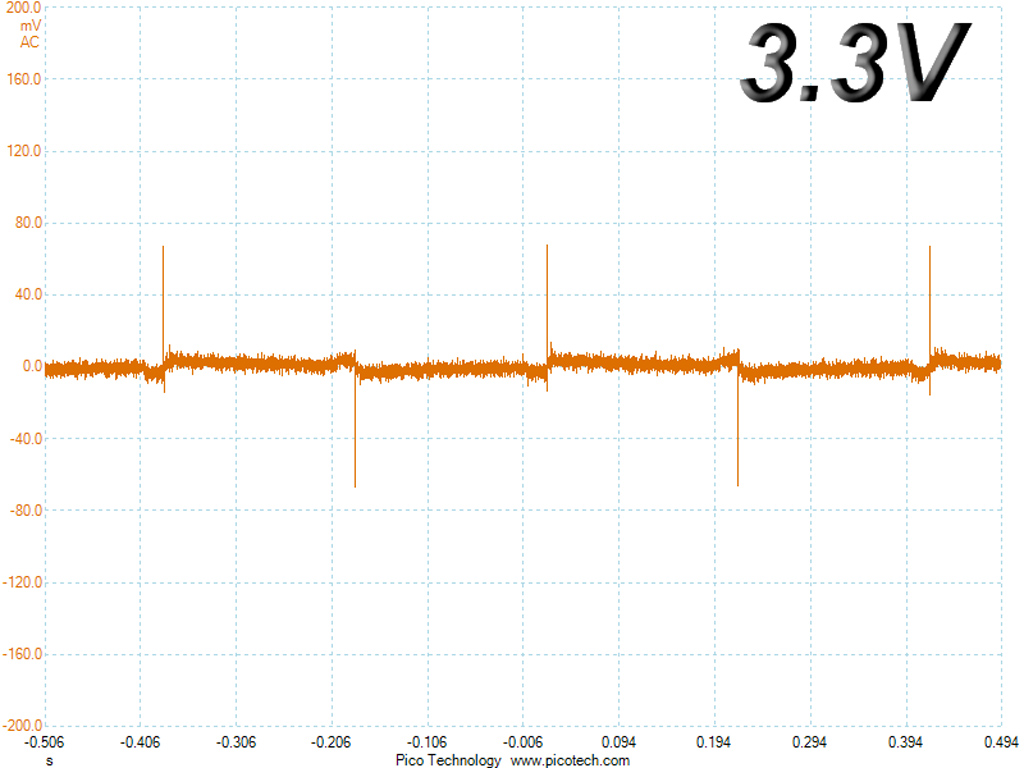
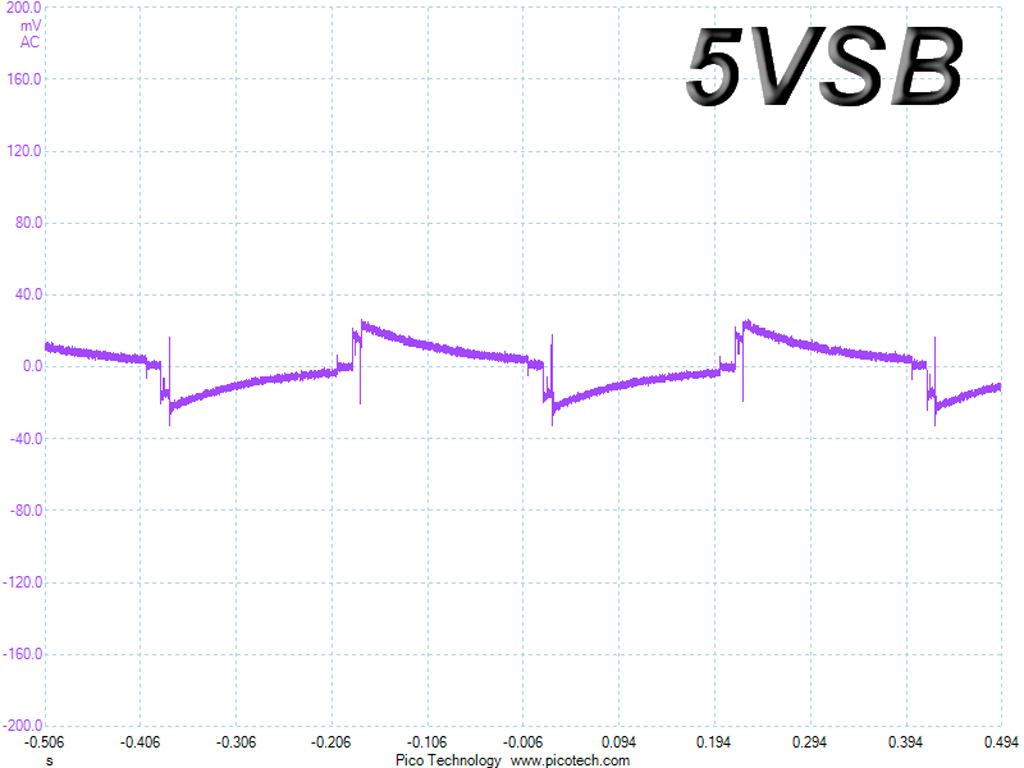
Transient Response At 50 Percent Load
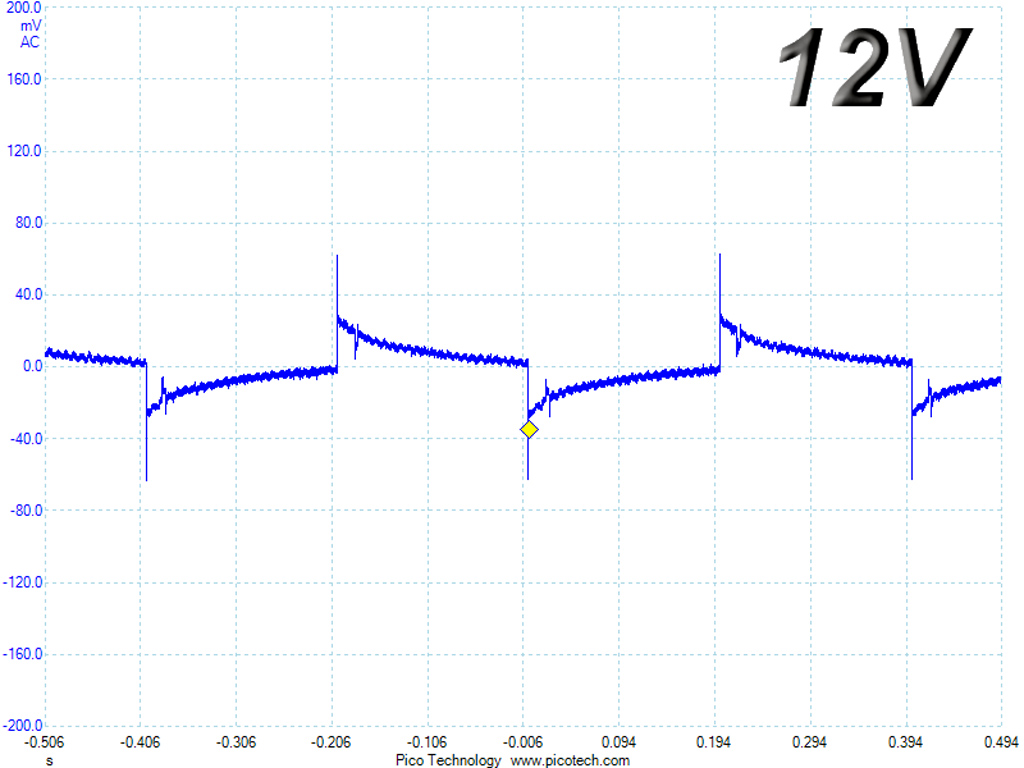
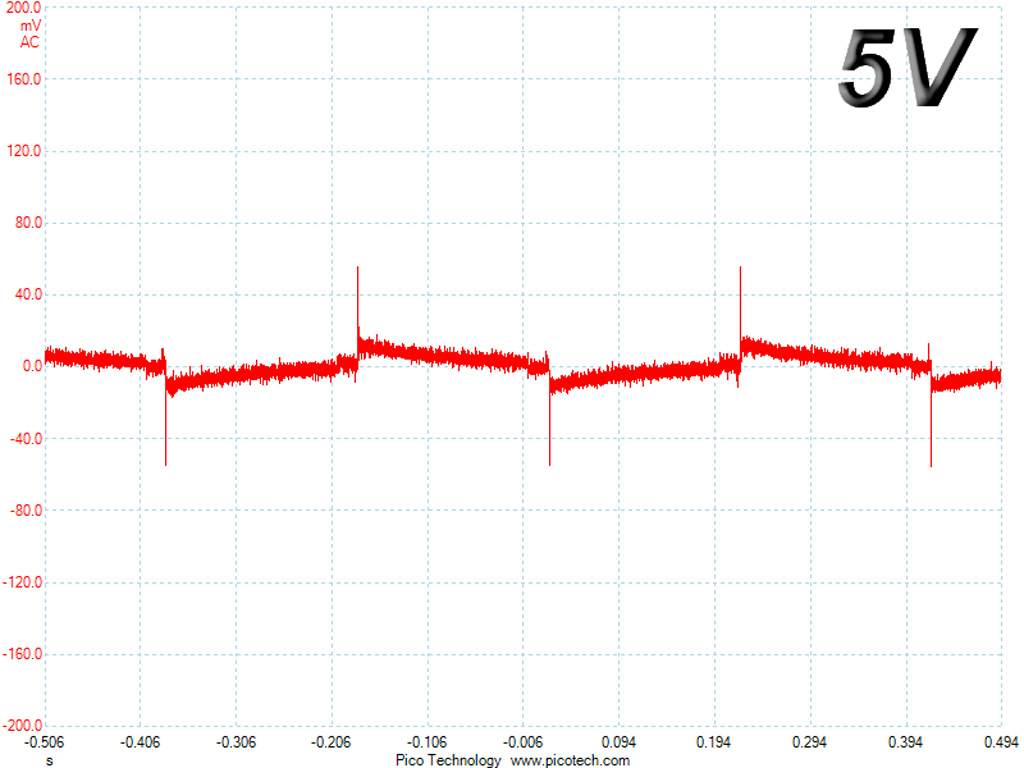
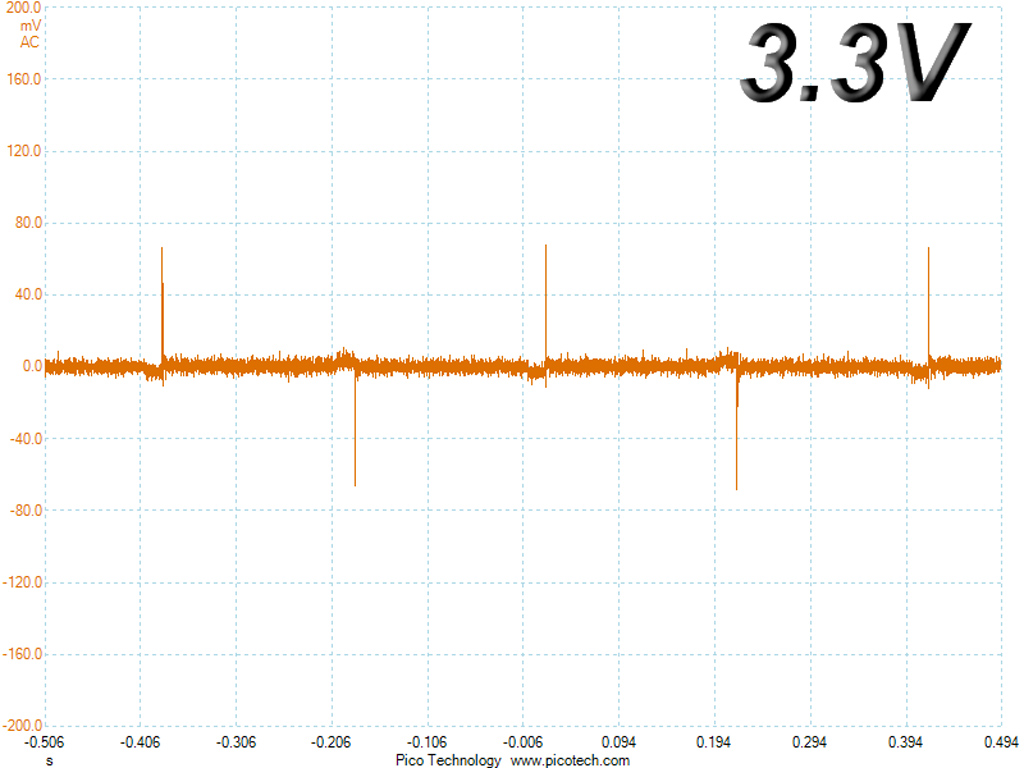
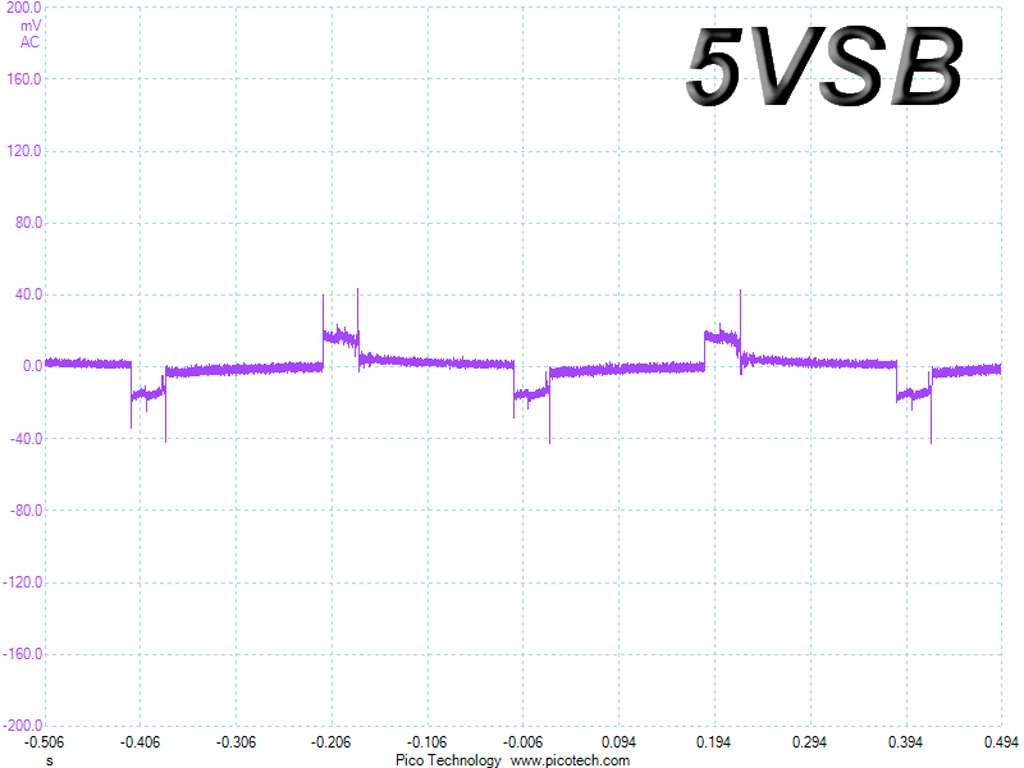
Turn-On Transient Tests
In the next set of tests, we measured the response of the PSU in simpler transient load scenarios—during the PSU's power-on phase.
For the first measurement, we turned off the PSU, dialed in the maximum current the 5VSB could output and switched on the PSU. In the second test, we dialed the maximum load the +12V could handle and started the PSU while it was in standby mode. In the last test, while the PSU was completely switched off (we cut the power or switched the PSU off by flipping its on/off switch), we dialed the maximum load the +12V rail could handle before switching the PSU on from the loader and restoring power. The ATX specification states that recorded spikes on all rails should not exceed 10 percent of their nominal values (+10 percent for 12V is 13.2V, and 5.5V for 5V).
Get Tom's Hardware's best news and in-depth reviews, straight to your inbox.
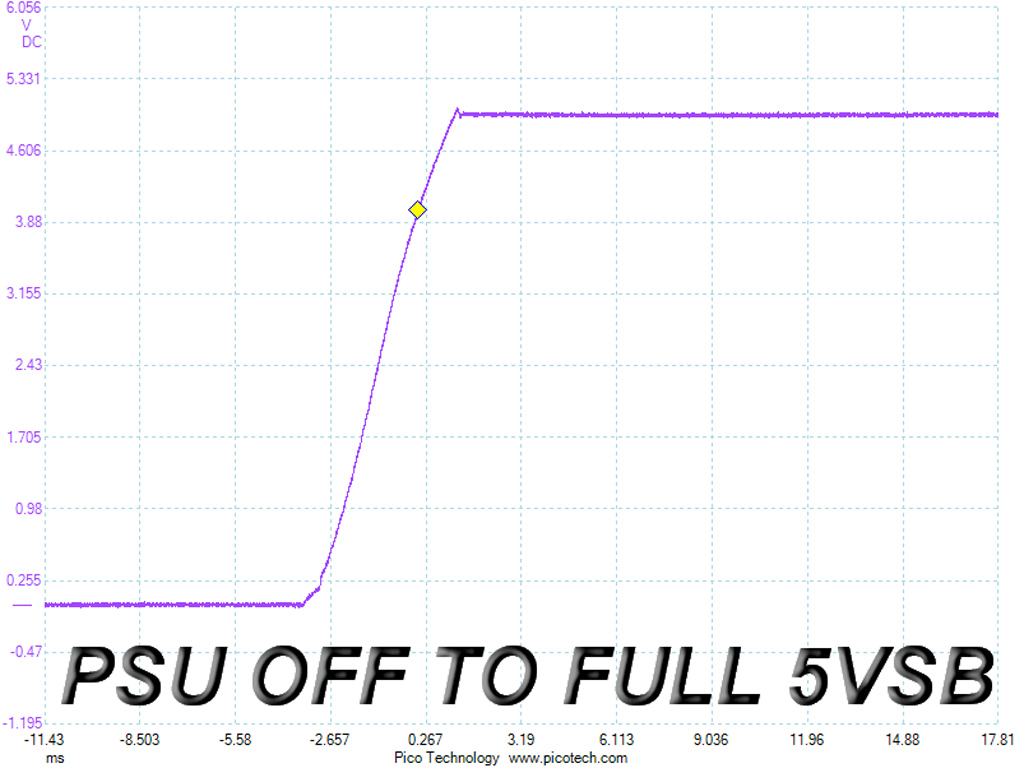
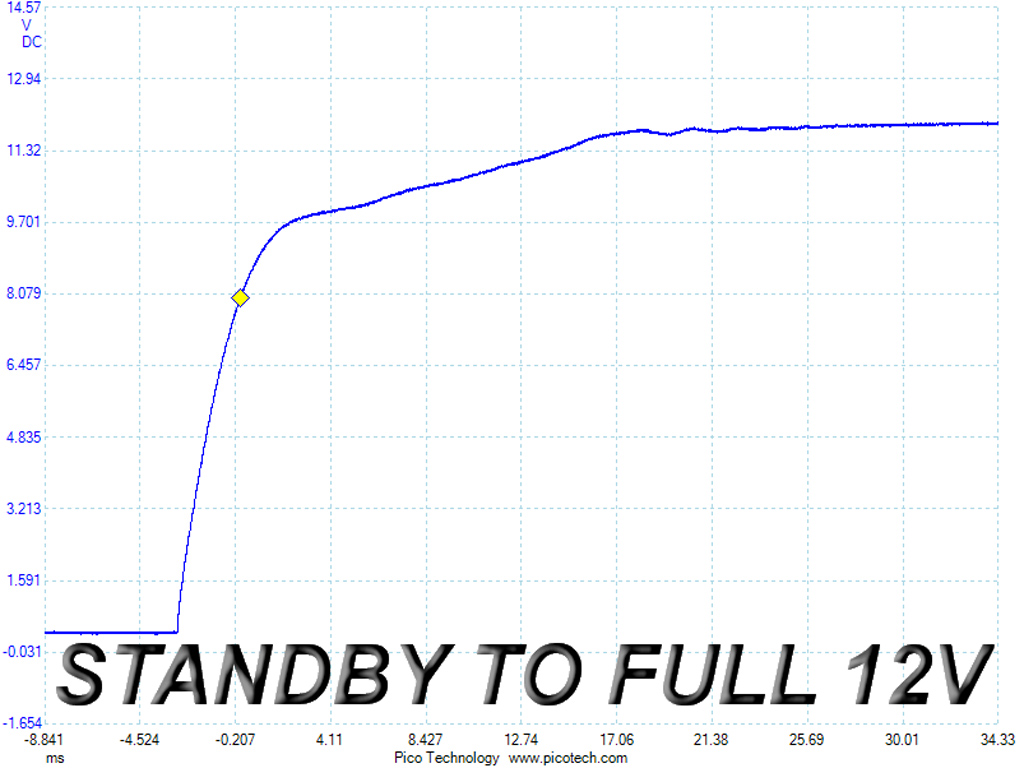
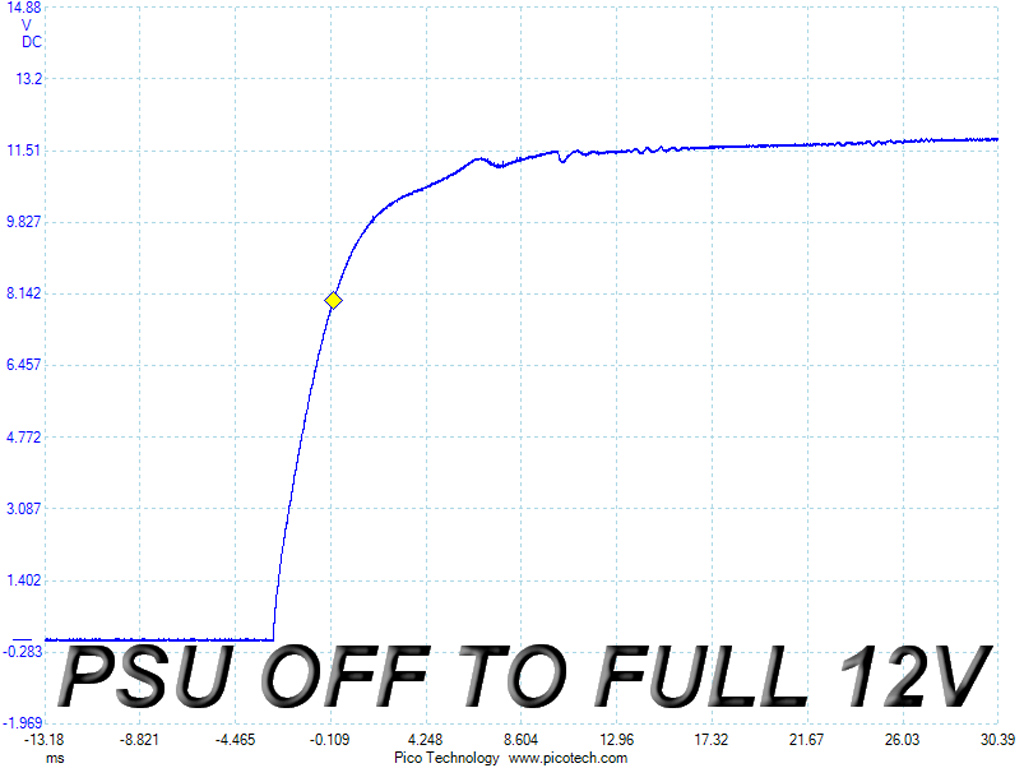
There are no spikes or voltage overshoots here. With a slightly smoother slope in the last test, the result would be perfect.
Current page: Transient Response Tests
Prev Page Cross-Load Tests And Infrared Images Next Page Ripple Measurements
Aris Mpitziopoulos is a contributing editor at Tom's Hardware, covering PSUs.
-
maxwellmelon for all the good listed in this article, this series of psu just gets bashed in the fourms, just interesting.Reply -
basroil Reply18305746 said:for all the good listed in this article, this series of psu just gets bashed in the fourms, just interesting.
You're thinking of the older RM650, different design.
The review here just made this unit be one of my recommended 650 models, tied with the EVGA G2/P2 and just below the Seasonic 660XP2! -
pjc6281 I have had this PSU for my new Skylake build for 2 months. Its GREAT, quiet and even have it pushing my old dinosaur Nvidia 590 with no problems. My old power supply was a Corsair AX1200 that was rock solid as well. Nothing but good experiences with them. I know others differ.Reply -
Dark Lord of Tech ReplyRMX doesn't get bashed , RMX and RMI are very very good. I own the RMX 850 , GREAT UNIT. -
TechyInAZ I'm glad the new RM series is much higher quality. All I remember Corsair having is a bunch of bad PSUs with select few good PSU (like AX and HX).Reply
I hope this same kind of quality intros into other models like the newly refreshed CX PSUs. -
Reply18305746 said:for all the good listed in this article, this series of psu just gets bashed in the fourms, just interesting.
Yeah, I believe you are confusing the RMx and RMi with the older, mostly discontinued RM line. And of the old RM line only the 750w and 850w versions that were first made by Chicony Power Technology had the bad reputation. Anyone bashing the RMx and RMi doesn't know what they are talking about. Once misinformation gets out there it's hard to get it corrected though.
Another great review Aris! :) -
Reply18308072 said:Why buy Corsair or EVGA when you can get a Seasonic?
Seasonic doesn't have a lock on quality. They also don't offer a 10 year warranty which both Corsair and EVGA do on some models. Just off the top of my head Flextronics, CWT and SuperFlower are all capable of making units that are at least equal to high end Seasonic quality. There are others as well. -
TechyInAZ Reply18308188 said:18308072 said:Why buy Corsair or EVGA when you can get a Seasonic?
Seasonic doesn't have a lock on quality. They also don't offer a 10 year warranty which both Corsair and EVGA do on some models. Just off the top of my head Flextronics, CWT and SuperFlower are all capable of making units that are at least equal to high end Seasonic quality. There are others as well.
Plus, efficiency levels are typically better with EVGA than Seasonic. -
Reply18308342 said:18308188 said:18308072 said:Why buy Corsair or EVGA when you can get a Seasonic?
Seasonic doesn't have a lock on quality. They also don't offer a 10 year warranty which both Corsair and EVGA do on some models. Just off the top of my head Flextronics, CWT and SuperFlower are all capable of making units that are at least equal to high end Seasonic quality. There are others as well.
Plus, efficiency levels are typically better with EVGA than Seasonic.
:??: Not sure what you mean. EVGA has a couple of 80 Plus Titanium models but Seasonic has Titanium models in their new lineup. I'm not sure if those new Seasonic models are available yet though. Other than that I've had an 80 Plus Platinum Seasonic ( 660XP2 ) for a couple of years and their Platinum line has been out since at least 2011.